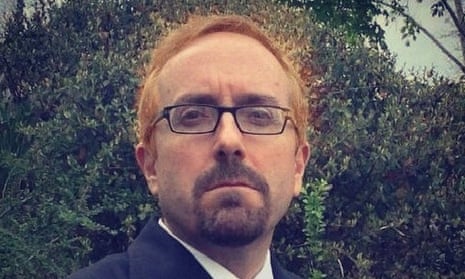The US ambassador to Turkey has fought back with humour after Ankara’s mayor called a US State Department spokeswoman a “stupid blonde”.
John Bass posted a picture on his Instagram account with his normally dark hair digitally altered to a reddish blond. The caption said: “American diplomats: we’re all blonde.”
The mayor of Turkey’s capital city, Melih Gökçek, was accused of hypocrisy on Thursday after tweeting a string of sexist and anti-American comments against Marie Harf, the acting spokeswoman for the US State Department – but launching hundreds of lawsuits against people who use Twitter to criticise him.
A Turkish pro-government newspaper had criticised her for being “silent” on unrest in Baltimore despite repeated US government criticism of Turkey during the violent crackdown on Gezi Park protesters in the summer of 2013.
And then Gokcek posted a tweet with an image of police in Baltimore forcibly subduing someone during the recent unrest with a caption that said: “Where are you stupid blonde, who accused Turkish police of using disproportionate force?”
The tweet included a picture of Harf and said: “Come on blonde, answer now.”
HADİ SARIŞIN CEVAP VERSENE... COME ON BLONDE ANSWER NOW... pic.twitter.com/gTeftDEWdg
— İbrahim Melih Gökçek (@06melihgokcek) April 29, 2015
In another tweet, the notoriously cantankerous Ankara mayor wrote: “According to the blonde girl, the government’s reaction during the Gezi Park protests were worrisome, but when it comes to your country, is it normal to declare a curfew.”
Harf said she did not want to “dignify [the tweets] with a response”, but challenged Gökçek’s claim that the US government had been silent on the unrest in Baltimore, saying that President Barack Obama had commented on the unrest, which erupted on the death of Freddie Gray, after his arrest by police.
But activists in Turkey pointed out that while Gökçek regularly lashes out at his opponents on Twitter, he is less happy to be the subject of online criticism.
In March this year Gökçek has filed a criminal complaint for defamation against Hayko Bagdat, a Turkish journalist of Armenian descent, after he jokingly called the Ankara mayor “Armenian” in tweets posted after the local elections. One of Bagdat’s messages read: “It is official – they gave the capital city to an Armenian. What a shame!”
The petition handed in by Gökçek’s lawyers stated that the mayor was “a citizen of the Turkish republic who loves his country and his nation”, and Bagdat’s comments therefore “false” and an “insult and libel”. Gökçek demanded 10,000 Turkish lira (£2,445) for “psychological damage”.
Emma Sinclair-Webb, senior Turkey researcher at Human Rights Watch, said: “It’s a complete double standard. Critical comment on government policies is interpreted as an insult, which completely conflicts which what ‘free speech’ means.”
Mayor of Ankara since 1994 and a veteran member of the ruling Justice and Development party (AK), Gökçek is one of the most polarising figures in Turkish politics.
A staunch supporter of the Turkish president, Recep Tayyip Erdoğan, he often uses the microblogging site to attack those he deems to be in opposition to the AK government. During the Gezi protests he quickly became known for his anti-protester tweets, but he has also regularly targeted journalists.
During the Gezi Park protests, he used Twitter to accuse a BBC reporter, Selin Girit, of being an “English agent”. Dozens of Turkish journalists have been publicly threatened by the Twitter-happy mayor, including the prominent investigative reporter Nedim Şener and the columnist Ceyda Karan.
On Thursday the case file of the television presenter Sedef Kabas, who posted a tweet criticising prosecutors who dropped a corruption inquiry involving the government, was sent to a high criminal court. She faces up to five years in prison.

Comments (…)
Sign in or create your Guardian account to join the discussion